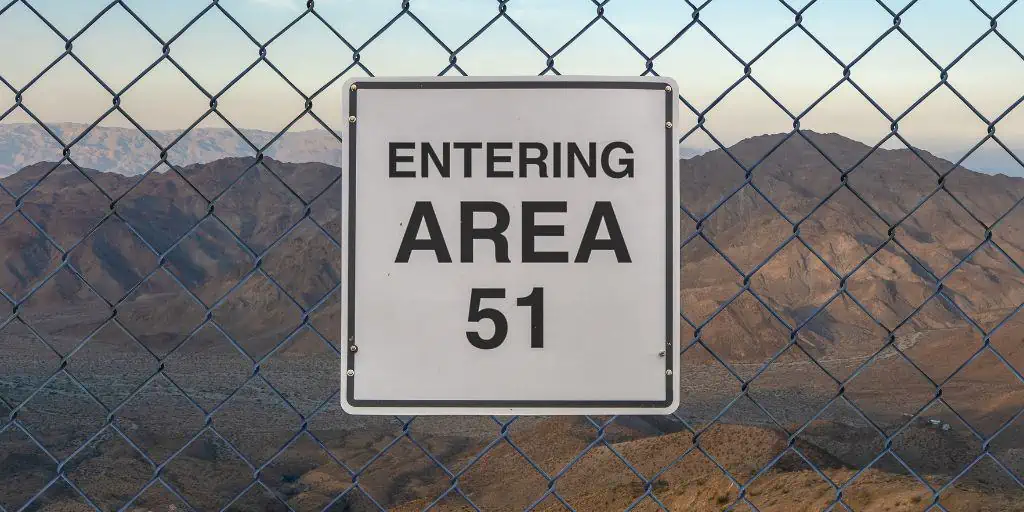Special Use Land Definition
REtipster does not provide legal advice. The information in this article can be impacted by many unique variables. Always consult with a qualified legal professional before taking action.
Shortcuts
- The U.S. recognizes six primary types of land use—agricultural, residential, commercial, industrial, transportation, and recreational.
- Special use land or special land use is a land use type that doesn’t fit into any of these categories.
- It refers to a particular piece of land with a unique or significant characteristic, such as natural or cultural features.
- Special use land usually requires an exception and approval from a local government.
- Examples of special use land include airports, cemeteries, landfills, military bases, and those with unique environmental properties.
What Does Land Use Mean?
Land use refers to how human activities utilize, manage, or modify land[2]. It is associated with the function or purposes of how humans use land. It involves allocating and managing various land resources, including natural, agricultural, and urban areas.

The Grand Canyon National Park is an example of a special use land. Pictured is the iconic Horseshoe Bend.
Land use is also a critical concept in environmental and urban planning. It has implications for biodiversity, ecosystem services, natural resource conservation, and human well-being. Furthermore, depending on the land use type, it is subject to zoning and other regulations[3].
Land designated as special use land is land set aside for purposes that do not fall under these clear-cut categories.
Land Use Types
There are several types of land use, but it primarily falls within six main types, with corresponding guidelines specifying where it can be located and how it can be applied[4].
Agricultural
Agricultural land, comprising farmland or ranches used for raising livestock, is influenced by climate, soil quality, water availability, and topography. Typically, it’s found in rural areas with fertile soil and sufficient water resources. Furthermore, agricultural land is generally concentrated in areas where farming is the primary economic activity.
Residential
Residential land is used for housing and other residential purposes, such as apartments, single-family homes, and townhouses. Typically located in urban and suburban areas, residential land may also be found in areas with good accessibility to urban facilities such as schools, healthcare facilities, shopping centers, and public transport.
Commercial

The Grove in Los Angeles is an example of commercially designated land use.
Commercial land usually describes office buildings, retail stores, and other properties made for the express purpose of commerce. It is usually found in densely populated places or areas that are easily accessible and visible, such as near transportation hubs and major highways.
Industrial
Industrial land is used for manufacturing, processing, and storing raw materials. Factories, warehouses, and distribution centers are common in industrial areas. Some zones with industrial land use include industrial parks and special economic zones.
Transportation
Transportation refers to designated areas for moving people and goods, such as highways, railways, and other transportation infrastructure. These areas are situated in diverse locations based on the unique requirements and characteristics of the community.
Recreational
Recreational land, such as parks, golf courses, and sports fields, is designated for recreation and entertainment. Its utilization depends on the specific location and its characteristics.
What Is Special Use Land?
Special use land typically refers to one with a unique or significant characteristic, such as natural or cultural features. It requires careful management or protection. For instance, it can include land designated as a protected area, a cultural heritage site, or one recognized for its ecological or geological significance[5].
Generally, special use land is a zoning classification or designation allowing specific or limited uses of a particular type of land that may not be permitted in other zoning categories or may differ from the uses allowed in that area[6]. These designations are typically established through community planning and zoning and may be subject to review and approval by local government bodies, such as planning commissions or zoning boards.
From the term itself, this particular land use type requires special consideration from local governments. In addition, it typically applies to areas with unique characteristics, such as areas near airports, wetlands, or historic districts.
Special use land may include those with unique impacts on the environment or surrounding community, such as commercial or industrial facilities, hospitals, schools, religious institutions, or large-scale residential developments. Its primary purpose is to balance the needs and interests of the community while ensuring that using the land is sustainable, safe, and compatible with the surrounding environment.
Regulations governing special use land may also promote the conservation of environmentally sensitive areas or protect historical sites and landmarks.
Examples of Special Use Land
Below are a few examples of land designated as special use:
Airports
Airports require significant land to operate, in addition to specific infrastructure, including runways, control towers, and aircraft maintenance facilities.
Airports adhere to rigorous safety regulations to ensure that all flights are secure for passengers, crew, and the surrounding communities. Nevertheless, airports can also have a significant environmental impact by contributing to noise and air pollution. Consequently, the governing authority should plan to mitigate these impacts[7].
Cemeteries
Cemeteries should comply with specific regulations to maintain the dignity of the deceased. The regulations cover markers, design, and upkeep of the cemetery.
Cemeteries can also affect the surrounding environment. Common examples include groundwater contamination and land use conflicts with nearby developments[8].
Landfills
Landfills are designated for the disposal of waste materials, making them subject to strict regulations to ensure safe waste disposal and environmental protection. These regulations cover the types of waste permitted, landfill design, and hazardous material management.
Additionally, landfills can have a considerable influence on the surrounding environment, causing groundwater contamination, air pollution, and incompatibility with the surrounding development.
Military Bases
Military bases typically require exclusive infrastructure, including training facilities, barracks, and weapons storage. Additionally, they must follow strict security protocols to ensure the safety of military personnel and the adjacent communities.
Like the other mentioned special land use, military bases can also contribute to noise pollution and land use conflicts with nearby development.
What Is Special Use Land Permit Law?
Local governments issue special use permits after reviewing the potential impacts of the proposed land use. This permit is usually a department-issued document entitling a permittee to utilize lands for an express purpose for a specific duration[9].
Generally, a planning and zoning department, responsible for regulating the use and placement of structures for every parcel of land, reviews these applications. These boards also create and implement plans incorporating several types of land use and review and make decisions on development applications.
How to Apply for a Special Use Land Permit
You can apply for a special land use permit by completing a form (online or written), by phone, or in person. Here’s a step-by-step process.
- Check and review the zoning ordinance — An applicant should review related articles in the zoning ordinance. Along with these articles are the application procedures and review standards[10].
- Consult the local authorities — Request a meeting with the local state or government and the planning and zoning department for a smooth application process.
- Speak with neighbors — Talking to neighbors allows you to receive comments, suggestions, and recommendations and resolve conflicts before proceeding with the planning commission review.
- Prepare credit/debit cards — A permit fee is needed, so having credit/debit cards ready will make processing a special land use application easier than being unprepared.
- Wait for the review of the application — Before submission to the planning commission, authorities will review the application and contact the applicant for clarifications, questions, or recommendations, if any.
- Get notified of a public hearing — Once the application has been reviewed, it will be forwarded for a public hearing to the planning department. In particular, a notice of this public hearing will be published 15 days before the hearing.
Sources
- Special Land Definition. Law Insider. Retrieved from https://www.lawinsider.com/dictionary/special-land
- Land Use. United States Environmental Protection Agency. Retrieved from https://www.epa.gov/report-environment/land-use
- The Governance of Land Use. Country Fact Sheet United States. Retrieved from https://www.oecd.org/regional/regional-policy/land-use-United-States.pdf
- Wood, D. Types of Land Uses: Recreational, Transport, Agricultural, Residential & Commercial. Study.com. Retrieved from https://study.com/academy/lesson/types-of-land-uses-recreational-transport-agricultural-residential-commercial.html
- Major Land Uses. Economic Research Service U.S. Department Of Agriculture. Retrieved from https://www.ers.usda.gov/topics/farm-economy/land-use-land-value-tenure/major-land-uses/
- Zoning and Land Use Planning. The World Bank. Retrieved from https://urban-regeneration.worldbank.org/node/39
- Resources for Managing Small Airports. ACRP WebResources. Retrieved from https://crp.trb.org/acrpwebresource6/home/chapter-resources/chapter-5-asset-management-maintaining-current-asset-and-planning-development-for-the-future/5-6-land-use-compatibility-and-zoning/
- Cemetery Land Use and the Urban Planner. Washington University School of Law. Retrieved from https://openscholarship.wustl.edu/cgi/viewcontent.cgi?article=1745&context=law_urbanlaw
- Special Land Use Permit definition. Law Insider. Retrieved from https://www.lawinsider.com/dictionary/special-land-use-permit
- Apply for a Special Land Use. City of Grand Rapids. Retrieved from https://www.grandrapidsmi.gov/Services/Apply-for-a-Special-Land-Use?fbclid=IwAR2_gMf51zC7B8qHPrG7GdXgZ5tjKgYrVSvaK9PcrF7gmq2oiaO-4tvh51E













